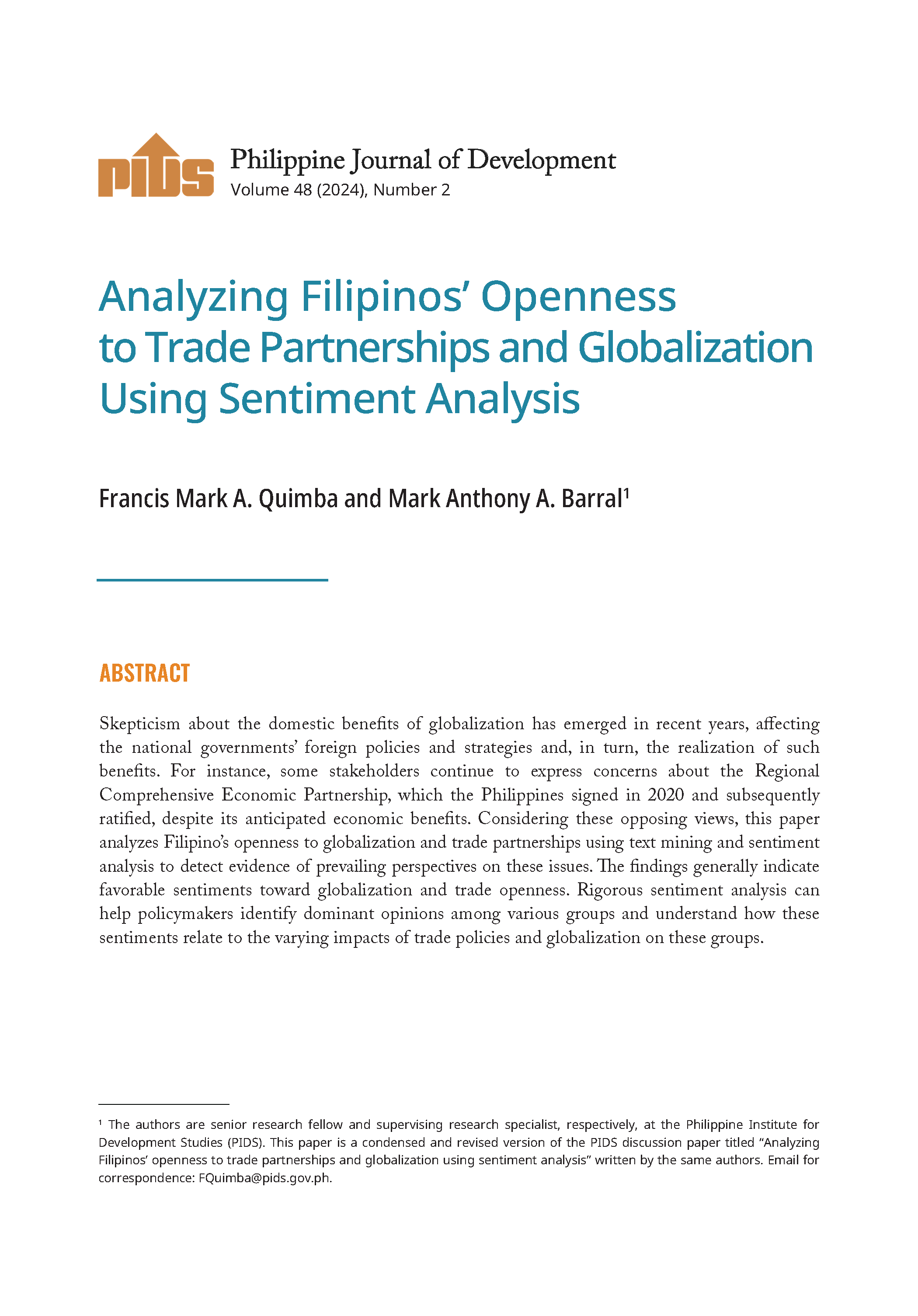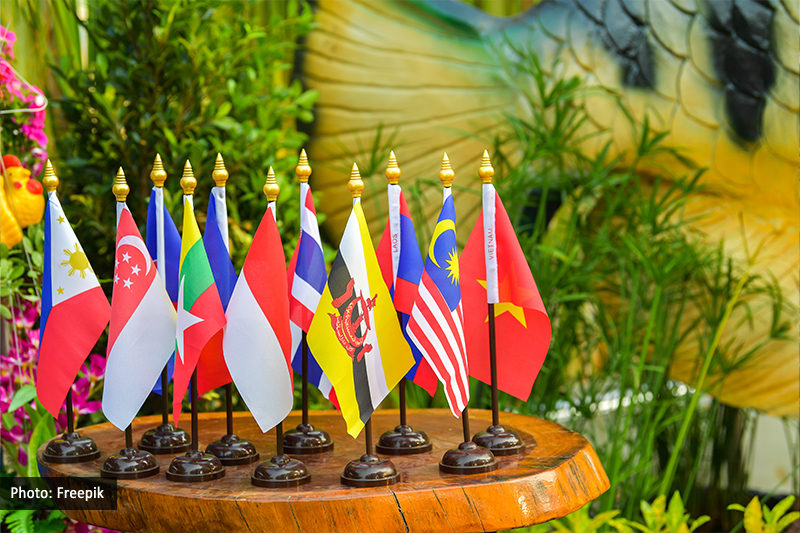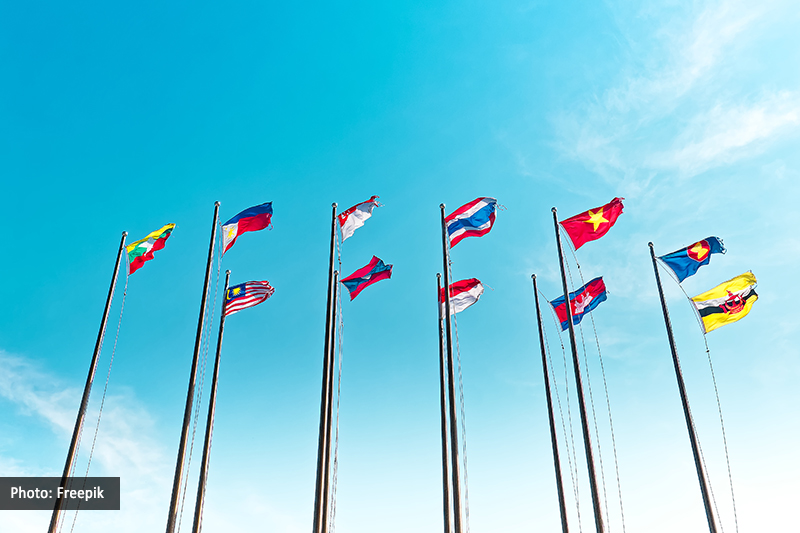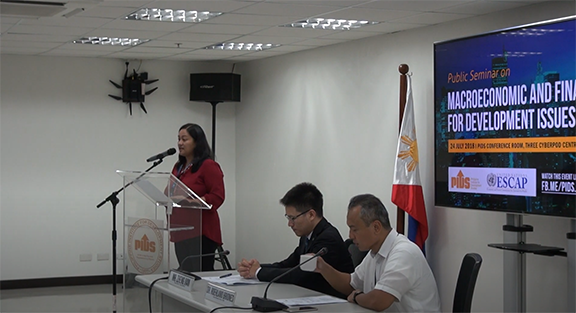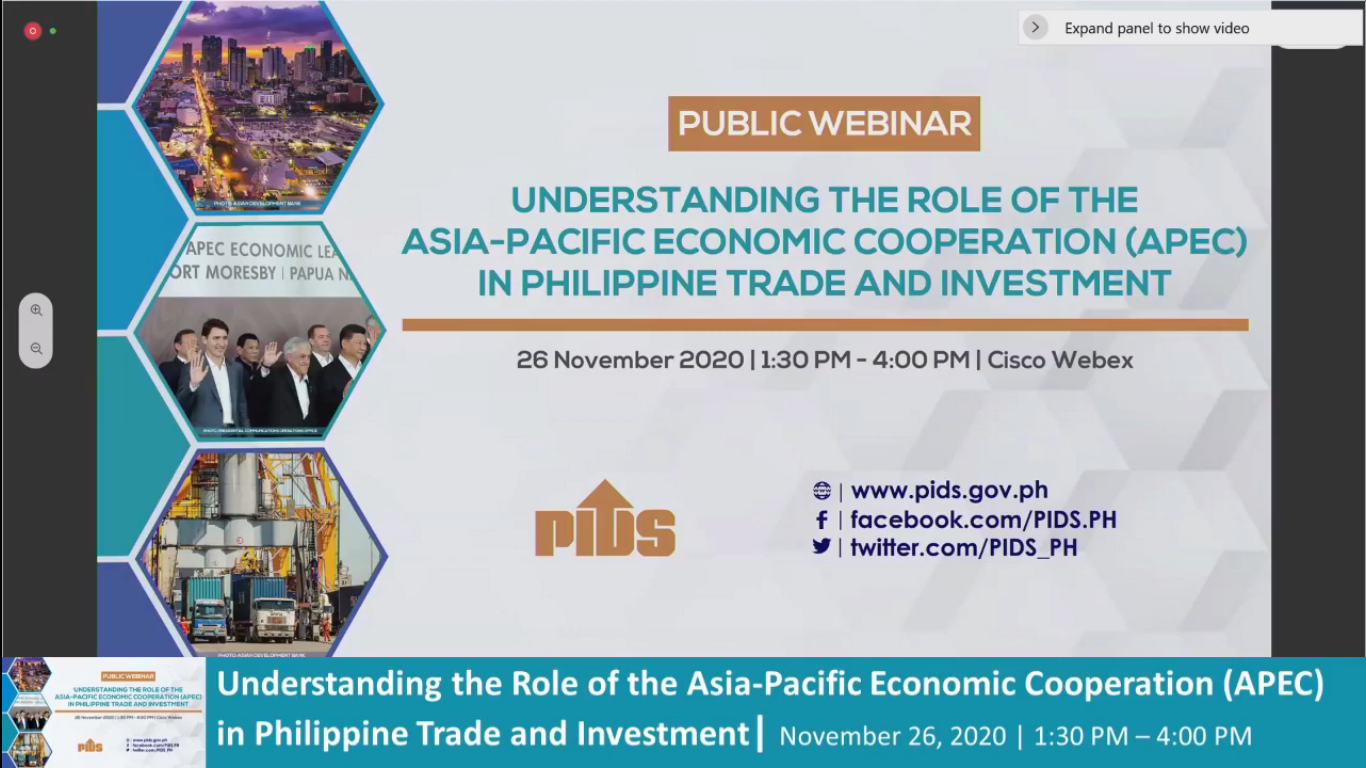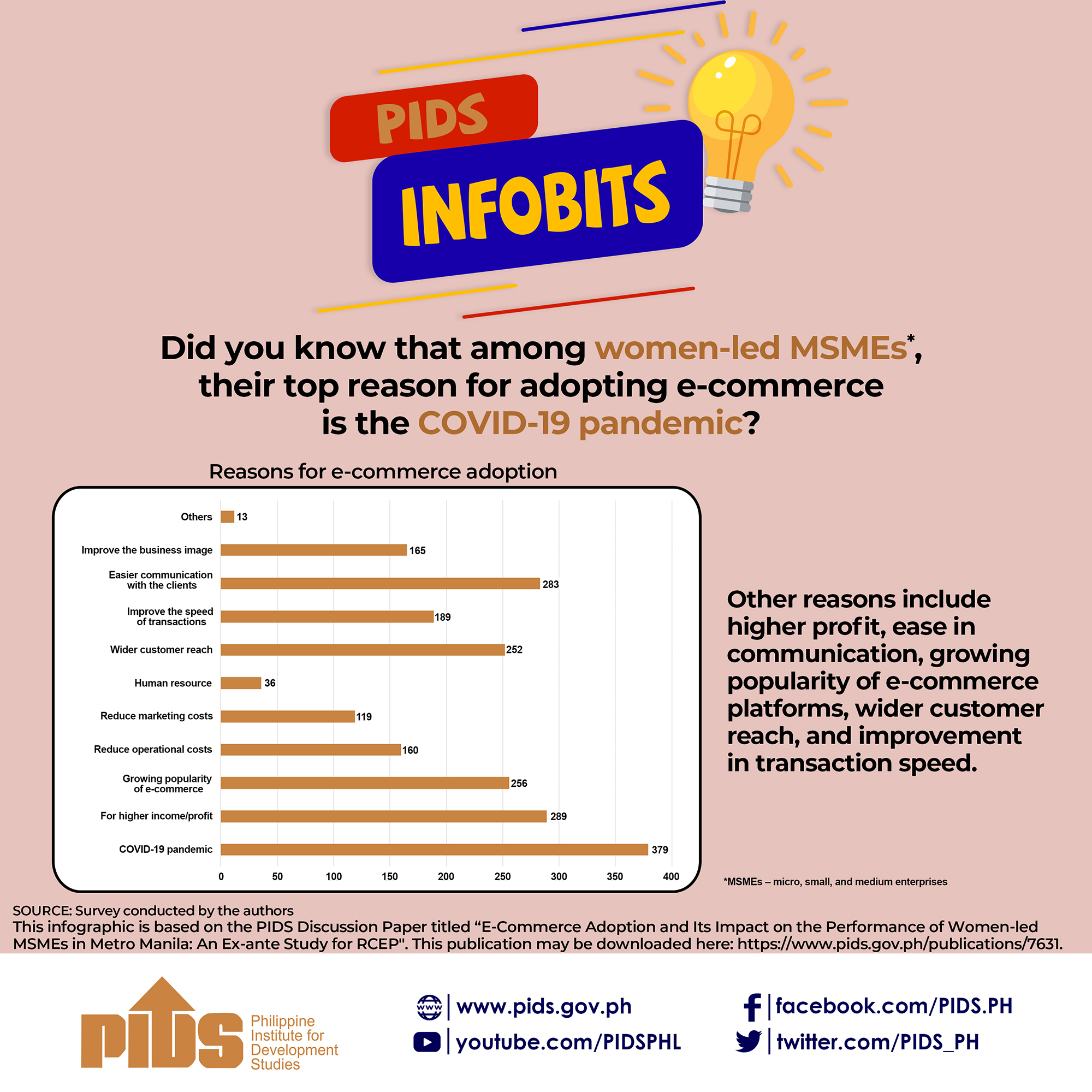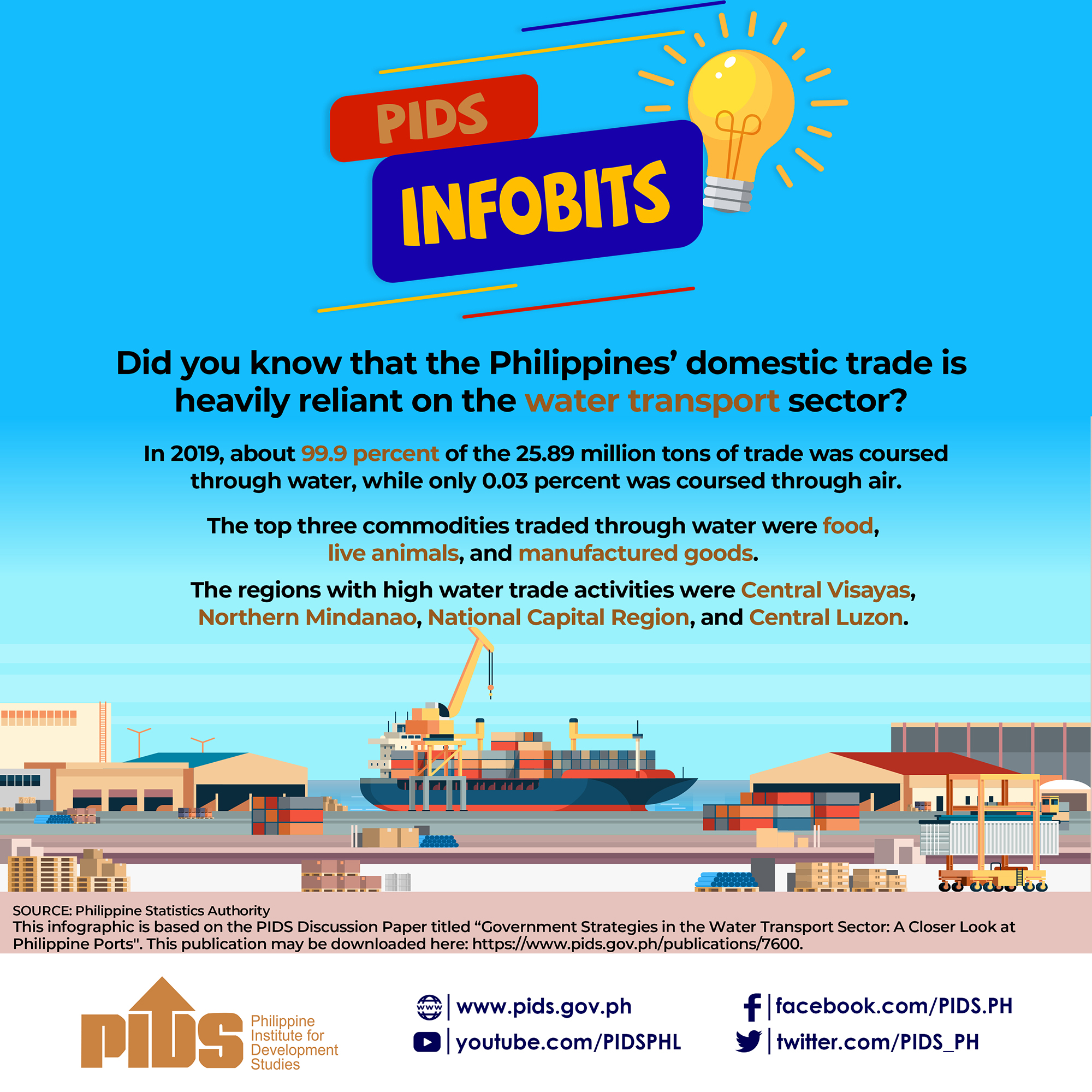
Governments need to focus on improving their investment environments to retain and attract foreign direct investments (FDIs) as the COVID-19 pandemic has created a lot of economic uncertainties that have delayed investment plans.
This was emphasized by Hazel C. Parcon-Santos, a senior researcher at the Bangko Sentral ng Pilipinas (BSP), during the webinar “Resilient Legs for Economic Recovery in the Post-Pandemic Era” organized by the Philippine Institute for Development Studies in collaboration with the BSP.
“FDI is deemed to be an important source of financing post-pandemic or in the recovery phase, as it can help generate more jobs,” she pointed out.
She added that the pandemic would further increase the competition among economies in terms of attracting FDIs.
Some countries have implemented measures to incorporate FDI-related policies in their COVID-19 recovery plans.
“[In the case] of the Philippines, the Corporate Recovery and Tax Incentives for Enterprises (CREATE) Act was passed on the first half of 2021, which reduces corporate income tax rates of foreign corporations from 30 percent to 25 percent,” Parcon-Santos said.
She also mentioned that some ASEAN economies are opening up to foreign investors by lifting restrictions in certain sectors, including retail, trade, and public services.
However, some of them are still “facing deterioration in their macroeconomic outlook” despite their efforts to attract FDIs, Parcon-Santos said.
In a study she coauthored with BSP Research Associate Marie Edelweiss Romarate and BSP Bank Officer V Ma. Rica Amador, they examined the factors that account for the differences in FDIs across several ASEAN countries, namely, Indonesia, Philippines, Malaysia, Viet Nam, and Thailand.
They also looked into how foreign investors differ across host countries and assessed the Philippines’ performance relative to its ASEAN peers.
“The Philippines, Malaysia, and Thailand slipped in terms of their FDI shares in the region from the 1980s to the recent decade. [Also,] the Philippines, in particular, saw its share decline from about 8 percent in the 1980s to just 3 percent in the 2010s. Meanwhile, we see Indonesia and Viet Nam improving their FDI performance throughout the decades,” Parcon-Santos said.
Moreover, their research found that “high corporate tax rates deter foreign investors” and “foreign equity restrictions have a negative and significant impact on investment or FDI.”
However, Parcon-Santos pointed out that “while lowering corporate tax rates can potentially increase FDI, countries need to be wary that this should not result in a race to the bottom, as this may end up being counterproductive [because] it can have significant repercussions on spending on essential public services, including infrastructure.”
She also said that countries should regularly assess their regulations on FDI as restrictions can have significant opportunity costs associated with forgone investments.
In general, their findings showed that foreigners invest more in countries with good quality of human capital, less corruption, better rule of law, higher quality of infrastructure, and greater ease of trading across borders.
However, the BSP senior researcher clarified that no one factor could singlehandedly attract FDIs.
“Foreign investors are attracted by a range of economic and noneconomic factors. So, [we need to] ensure a holistic approach to successfully retain and attract FDI,” she explained.
You may watch the webinar at https://fb.watch/8VKso6zaEt/ or https://youtu.be/v_yqrofItA0. For more videos of PIDS events, go to https://www.pids.gov.ph/videos.
This was emphasized by Hazel C. Parcon-Santos, a senior researcher at the Bangko Sentral ng Pilipinas (BSP), during the webinar “Resilient Legs for Economic Recovery in the Post-Pandemic Era” organized by the Philippine Institute for Development Studies in collaboration with the BSP.
“FDI is deemed to be an important source of financing post-pandemic or in the recovery phase, as it can help generate more jobs,” she pointed out.
She added that the pandemic would further increase the competition among economies in terms of attracting FDIs.
Some countries have implemented measures to incorporate FDI-related policies in their COVID-19 recovery plans.
“[In the case] of the Philippines, the Corporate Recovery and Tax Incentives for Enterprises (CREATE) Act was passed on the first half of 2021, which reduces corporate income tax rates of foreign corporations from 30 percent to 25 percent,” Parcon-Santos said.
She also mentioned that some ASEAN economies are opening up to foreign investors by lifting restrictions in certain sectors, including retail, trade, and public services.
However, some of them are still “facing deterioration in their macroeconomic outlook” despite their efforts to attract FDIs, Parcon-Santos said.
In a study she coauthored with BSP Research Associate Marie Edelweiss Romarate and BSP Bank Officer V Ma. Rica Amador, they examined the factors that account for the differences in FDIs across several ASEAN countries, namely, Indonesia, Philippines, Malaysia, Viet Nam, and Thailand.
They also looked into how foreign investors differ across host countries and assessed the Philippines’ performance relative to its ASEAN peers.
“The Philippines, Malaysia, and Thailand slipped in terms of their FDI shares in the region from the 1980s to the recent decade. [Also,] the Philippines, in particular, saw its share decline from about 8 percent in the 1980s to just 3 percent in the 2010s. Meanwhile, we see Indonesia and Viet Nam improving their FDI performance throughout the decades,” Parcon-Santos said.
Moreover, their research found that “high corporate tax rates deter foreign investors” and “foreign equity restrictions have a negative and significant impact on investment or FDI.”
However, Parcon-Santos pointed out that “while lowering corporate tax rates can potentially increase FDI, countries need to be wary that this should not result in a race to the bottom, as this may end up being counterproductive [because] it can have significant repercussions on spending on essential public services, including infrastructure.”
She also said that countries should regularly assess their regulations on FDI as restrictions can have significant opportunity costs associated with forgone investments.
In general, their findings showed that foreigners invest more in countries with good quality of human capital, less corruption, better rule of law, higher quality of infrastructure, and greater ease of trading across borders.
However, the BSP senior researcher clarified that no one factor could singlehandedly attract FDIs.
“Foreign investors are attracted by a range of economic and noneconomic factors. So, [we need to] ensure a holistic approach to successfully retain and attract FDI,” she explained.
You may watch the webinar at https://fb.watch/8VKso6zaEt/ or https://youtu.be/v_yqrofItA0. For more videos of PIDS events, go to https://www.pids.gov.ph/videos.


